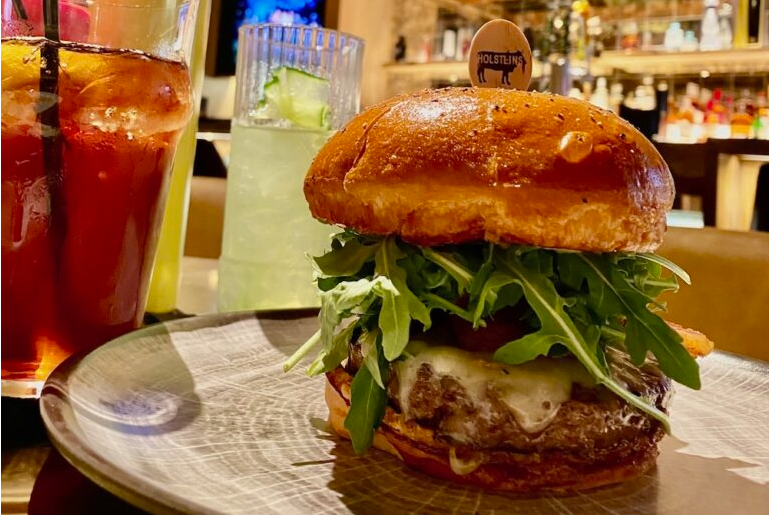
It is nearly impossible to step up to a craps table today without seeing at least one shooter attempting to set and toss the dice in a certain manner to get a desired result. Whether it is just quickly setting a certain number on top or engaging in a protracted ritualistic pre-shot routine, dice influencing is tried in every casino, every day. This is the second of a three part series on the topic of DICE CONTROL. Here in Part 2, I will recount the history of modern dice control as I remember it. In Part 1 we examined the dice control controversy. In Part 3 we will look at the basic principles used by the dice control practitioner.
PART 2 – The History of Dice Control – As I Remember It
Although there is evidence that the theory of dice control, also known as dice influencing, first came about in the 1920’s, it was not until the late 1990’s when early internet message boards began debating the subject, that it became a popular topic of discussion that later resulted in formal schools and organized dice control teams. Different people have different version of the rise of dice control but this is how I remember it:
The latter part of the 1990s was an embryonic period for casino dice control. It began as a buzz, on early versions of internet message boards known as UseNet groups. The groups were dedicated to different subjects: politics, television shows, gambling etc. The one for craps was very active, for the time.
Steve “Heavy” Haltom, who would later go on to found the Axis Power Craps School, (STILL IN BUSINESS) was on the early message board quite often. Dom “Dominator” LoRiggio, the future face of Golden Touch Craps, was also on the board. I believe Chris “SharpShooter” Pawleki, an engineer, that also studied the effect of physical forces on dice, as they travel through the air, was also on that board. Pawleki would later author a book about dice control that heavily emphasized the technical aspects of the physics of the dice toss.
Around that time, a book was published by Yuri Kononeko, called Dice Control for Casino Craps. The book sent the craps message board discussions into high gear. Vitriolic battles erupted between those that preached a belief in the ability and those that said it was snake oil.
At that time, a successful gambling author and former blackjack card counting instructor, named Jerry Patterson began marketing a mail-order correspondence type course in dice control known as PARR (PAtterson Rhythm Rolling). The course included a hands-on course which Patterson would present one weekend per year in Las Vegas and one weekend per year in Atlantic City. The live class, in addition to teaching the physical principals for Dice Control, included a lecture by psychoanalyst Dr. Steven Heller (now deceased). The doctor provided a method that he claimed could be used in improving a shooter’s dice control ability by transforming the player’s mind using relaxation and visualization to get to a mental place he called the PARR Zone.
Dice Control Schools Flourish
As more internet posters showed interest in acquiring a dice influencing ability, websites claiming to be able to teach dice control skills were popping up all over the internet. Most disappeared as quickly as they appeared but the more popular ones seemed to flourish.
In 2002, Jerry Patterson held a Las Vegas craps “festival,” featuring speakers from the some of the various internet dice control related websites. Paterson was the emcee. Heavy and SharpShooter were featured speakers. There were a few other speakers, including then internet gambling maven Larry Edell, discussing comps. The main attraction of the festival was the #1 gambling writer then (and also now) Frank Scoblete. Up to this point, Scoblete had not spoken much publicly about Dice Control, although astute readers of his books were aware of his references to what he referred to as “Rhythm Rollers.” Scoblete had recently attended Patterson’s hands-on PARR class in Atlantic City, which resulted in him being invited to be the keynote speaker in Vegas.
Not long after the Las Vegas and Atlantic City, Scoblete/PARR events, Frank Scoblete teamed up with some defectors from Patterson’s PARR instruction team, including Dom “Dominator” LoRiggio and formed Golden Touch Craps (GTC). The PARR instructors were disgruntled; apparently they had been working for Patterson as volunteers. In the new GTC format they would be compensated for their efforts.
GTC came out of the box strong. They had a technically sophisticated website that included a message board where students and prospective students could communicate with the instructors. They also formatted the class like a college course and had a low student to instructor ratio. In the beginning, Scoblete was the known personality of Golden Touch Craps, but he quickly put Dominator out there as the public face. He featured LoRiggio on the cover of books he authored and wrote about him in articles, referring to him as the world’s greatest dice controller.
In 2003 Frank Scoblete and several other dice control practitioners, including the founder of a Las Vegas based dice control school, Beau “Dice Coach” Parker were featured in the A&E Network TV show Take This Job. The episode was called “Easy Money” and featured professional gamblers at the craps table. They had a rocky start but at the end, they are shown pouring a mountain of chips onto the center of a craps table. The viewer was left to presume that they had rallied and won all those chips.
The GTC School grew quickly, even with a tuition that was then, I believe, around $1,200 (now around $1,500). Its success was likely based on a combination of Scoblete’s mastery of marketing and the professional manner in which it was operated. The professional format contrasted greatly with other more fly by night internet schools that seemed like they were thrown together in a weekend and run by some anonymous persons, operating out of their garage. Contrary to some of the other dice control schools that had popped up all over the internet, like mushrooms after a soaking rain, GTC was professionally run. They had a detailed class syllabus, an instruction manual, rules of player conduct, an instructor certification program, etc.
GTC interest further exploded in 2006 when characters based on Scoblete, Dominator and SharpShooter were featured on the “Dice Dominator” episode of the A&E Network show Breaking Vegas. The show recreated a scene that showed LoRiggio’s journey to become an expert craps shooter.
At the same time that GTC was growing nationwide, down in Texas early dice control proponent Steve “Heavy” Haltom was building a solid regional following in the West and the South. His “Axis Power” classes held in Las Vegas and locations throughout the southern United States gathered a loyal following. He also produced and marketed a professional quality instructional DVD. Heavy’s class was not run with quite the same fanfare of the GTC school but his down home, no frills style and bargain price, which was about half of GTC “tuition,” made him a popular option for the more budget conscious..
GTC and Axis Power were suddenly the biggest names in the crowded dice control field. Their philosophy differed somewhat but each school had very loyal followers. This lead to fierce competition between the leaders of the two camps and it was not unusual to hear one group insult the other. This feud became further heated when a former high profile instructor from GTC, left the GTC camp and later joined up with Heavy’s Axis Power school.
Today, of the dozen or so dice control schools that were around a decade ago, only a few survive. Heavy still has a loyal following with his Axis Power School and website. GTC is also still going strong, although Scoblete is no longer a part of it. After GTC celebrated the ten year anniversary, Scoblete announced that he was retiring. Later, Scoblete made public allegations of business related financial irregularities by his ex-partner and one time friend, Dominic LoRiggio.
If you would like to know if I would recommend that anyone spend money for one of these schools, the answer is absolutely not. If you are interested in the topic, there is plenty of dice control information available for free on the internet.
In conclusion, I will state that I have the chicken soup for a cold, opinion of dice control; it may not help but it can’t hurt.
The Inveterate Gambler has had a keen interest in casino games and the casino industry for more decades that he likes to remember. Craps, Blackjack and some Pai Gow Poker are his games of choice. He also enjoys playing in the home poker game were wild cards and luck overcome skill. He has no interest in slots and if there were no table games he would never set foot inside a casino. He is an expert on the Atlantic City scene. Like Batman, Superman, The Green Hornet, and a host of his other comic book heroes, The Inveterate Gambler must keep his true identity secret.















